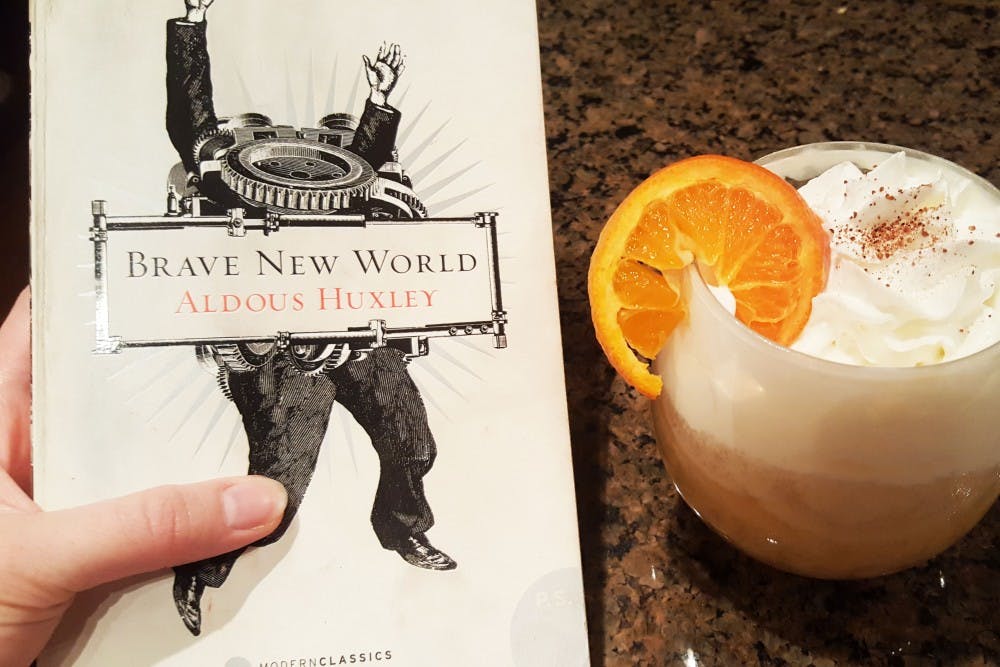Continuing a series started by former reporter and current digital editor Carson Abernethy in 2016, the arts and culture editors will drink their way through great works of literature, reviewing books and the booze that inspired them.
Albous Huxley's 1932 novel “Brave New World” is the book that defined Huxley's career and was significant at the time for its prescient exploration of a dystopian world with genetic engineering and test-tube babies.
The science in "Brave New World" exists today, although society's aversion to eugenics keeps it from being abused.
While growing up, Huxley's grandfather was a highly recognized biologist and the young Huxley planned on following in his father's steps. However, at 16 years old, Huxley was forced to abandon these aspirations when an illness left him partially blind, but the influence of his interest in science is evident in the content of his novels.
In "Brave New World," Big Brother becomes obsolete as society is genetically programmed from birth to be content, consumeristic and promiscuous and is subdued through the use of of a widely distributed drug called Soma.
Alcohol might be the closest legal substance to Soma available in our society today. The Painkiller Cocktail from liquor.com is a twist on a Piña Colada that is sure to resemble of the sensation of the drug.
Recipe:
2 oz rum
4 oz pineapple juice
1 oz orange juice
1 oz cream of coconut
Pour the ingredients into a glass, mix and pour over ice. Garnish with an orange wedge and/or a cherry, nutmeg and whipped cream is desired.
Prose: 4/5
Huxley’s writing shines when he’s world building, but some of the sections after, though short, feel like a chore to read. However, there are enough interesting plot points to keep readers engaged. "Brave New World" isn’t as polished as George Orwell’s “1984,” but it is cohesive and insightful in its own sense.
Characterization: 4/5
"Brave New World" doesn’t really have a protagonist — the characters are well developed and their individual dysfunctions make them compelling but they are unlikable, making it difficult to root for any of them. Bernard Marx's character development through the story reflects misgivings about Marxist ideologies, and the fate of the character John the Savage is a powerful reflection of the growing disparity between developed nations and third-world countries.
Cohesiveness: 5/5
The structure in "Brave New World" is simple and easy to follow — there are no convoluted plot points and Huxley does a good job of creating a believable world.
Relevance: 5/5
Soma, the drug of choice in "Brave New World," can be compared to substances like anti-depressants and alcohol that many cling to just to get through their days. "Brave New World" is more relevant than ever because of how much of the technology presented in the novel is no longer science-fiction. We live in a world where designer babies are a reality, just like the test-tube babies presented in the book.
Overall: 5/5
"Brave New World" is a prime example of a dystopian novel done well. Huxley reflects on social and political issues like overpopulation, the growing economic disparity between nations and the struggle to balance technological advancements with ethics, all while telling an interesting and compelling story.
Read more: Books and Booze 'To Kill a Mockingbird' by Harper Lee
Reach the reporter at jicazare@asu.edu or follow @sonic_429 on Twitter.
Like State Press on Facebook and follow @statepress on Twitter.




